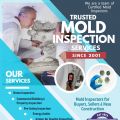Summer Mold Hotspots: What to Look For and How to Protect Yourself

Summer, with its warm temperatures and high humidity, creates an ideal environment for mold growth. Recognizing the common mold hotspots in your home, understanding why it’s crucial to check for mold during the summer months, and knowing how to protect yourself during a mold inspection are essential steps to ensure a healthy living environment. Bay Area Mold Pros, led by certified mold inspector Rick Bruce, offers expert mold inspection and testing services to help you keep your home safe.
Summer Mold Hotspots: What to Look For
During the summer, certain areas of your home are more prone to mold growth due to increased moisture levels. Here are some common mold hotspots to keep an eye on:
- Bathrooms
- Why: High humidity from showers and baths.
- Signs: Black or green spots on tiles, grout, or walls; musty odor.
- Prevention: Use exhaust fans, clean regularly, and fix any leaks promptly.
- Kitchens
- Why: Steam from cooking, leaky sinks, and condensation from refrigerators.
- Signs: Mold growth under sinks, around windows, and in pantry areas.
- Prevention: Ensure proper ventilation, wipe down surfaces, and repair leaks.
- Basements
- Why: Basements tend to be damp and poorly ventilated.
- Signs: Musty smell, visible mold on walls, floors, or stored items.
- Prevention: Use a dehumidifier, seal cracks, and improve air circulation.
- Attics
- Why: Poor ventilation and roof leaks.
- Signs: Mold on insulation, wooden beams, or roofing materials.
- Prevention: Ensure proper ventilation, check for roof leaks, and keep the attic dry.
- Laundry Rooms
- Why: Moisture from washing machines and dryers.
- Signs: Mold around appliances, in hoses, and on walls.
- Prevention: Ventilate the room, clean appliances, and fix leaks.
- Air Conditioning Units
- Why: Condensation and moisture buildup.
- Signs: Moldy smell when the unit is running, visible mold in ducts or vents.
- Prevention: Regular maintenance, clean filters, and ensure proper drainage.
Why It’s Important to Check for Mold in Summer
Checking for mold during the summer is crucial for several reasons:
- Health Risks: Mold can cause respiratory problems, allergic reactions, and other health issues. During the summer, increased mold growth can exacerbate these problems, especially for those with asthma or allergies.
- Structural Damage: Mold can weaken the structural integrity of your home by damaging walls, ceilings, and floors. Identifying and addressing mold growth promptly can prevent costly repairs.
- Preventing Spread: Mold spores can easily spread throughout your home via air currents and HVAC systems. Early detection and remediation can prevent mold from contaminating other areas of your home.
- Improving Air Quality: Mold can negatively impact indoor air quality, leading to an unhealthy living environment. Regular inspections can help maintain clean, breathable air.
How to Protect Yourself During a Mold Inspection
When conducting a mold inspection or remediation, it’s essential to protect yourself to avoid exposure to harmful mold spores. Here are some safety tips:
- Wear Protective Gear:
- Respirator Mask: Use a high-quality respirator mask (N95 or higher) to avoid inhaling mold spores.
- Gloves: Wear rubber gloves to protect your skin from mold and cleaning chemicals.
- Goggles: Use safety goggles to protect your eyes from mold spores and debris.
- Coveralls: Wear disposable coveralls to prevent mold spores from contaminating your clothing.
- Contain the Area:
- Seal off the area being inspected or treated with plastic sheeting to prevent mold spores from spreading to other parts of the house.
- Ventilate the Area:
- Use fans or open windows to increase airflow and reduce moisture levels, but ensure the exhaust does not spread mold spores to other areas.
- Use Proper Cleaning Solutions:
- Use EPA-approved mold cleaning solutions to effectively remove mold. Avoid using bleach on porous materials as it may not eliminate mold roots.
- Dispose of Contaminated Materials Safely:
- Place any mold-contaminated materials in sealed plastic bags before disposing of them to prevent mold spores from spreading.
Professional Mold Inspection and Mold Testing Services
For comprehensive mold inspection and testing services, rely on Bay Area Mold Pros and certified mold inspector Rick Bruce. Their expertise ensures thorough assessments and effective remediation strategies to keep your home mold-free.
- Visual Inspections: Detailed visual inspections to identify visible mold growth and potential moisture issues.
- Moisture Mapping: Advanced tools to detect hidden moisture sources, which are often the root cause of mold problems.
- Air Sampling: Collection and analysis of air samples to determine the concentration and types of mold spores present in the indoor environment.
- Surface Sampling: Samples taken from surfaces to identify specific mold species and assess the extent of contamination.
- Comprehensive Reporting: Detailed reports outlining findings and recommending appropriate remediation actions.
- Mold Remediation Guidance: Recommendations for effective mold removal and prevention strategies based on the inspection results.
Contact Bay Area Mold Pros for Professional Mold Inspection and Testing
For residents and businesses in the Bay Area, professional mold inspection and testing services by Rick Bruce provide peace of mind and effective solutions. With years of experience and certification, Rick Bruce offers detailed assessments tailored to the specific needs of each property.
To request an inspection or learn more about professional mold inspection and testing services, contact Bay Area Mold Pros at (650) 762-6228. Visit Bay Area Mold Pros to schedule a professional mold inspection and testing service. Protect your home and your loved ones with expert mold assessment and remediation services from certified mold inspector Rick Bruce.
Related items:
 1/8/2023
What Is Mold Testing and What Is Mold Remediation?
1/8/2023
What Is Mold Testing and What Is Mold Remediation?